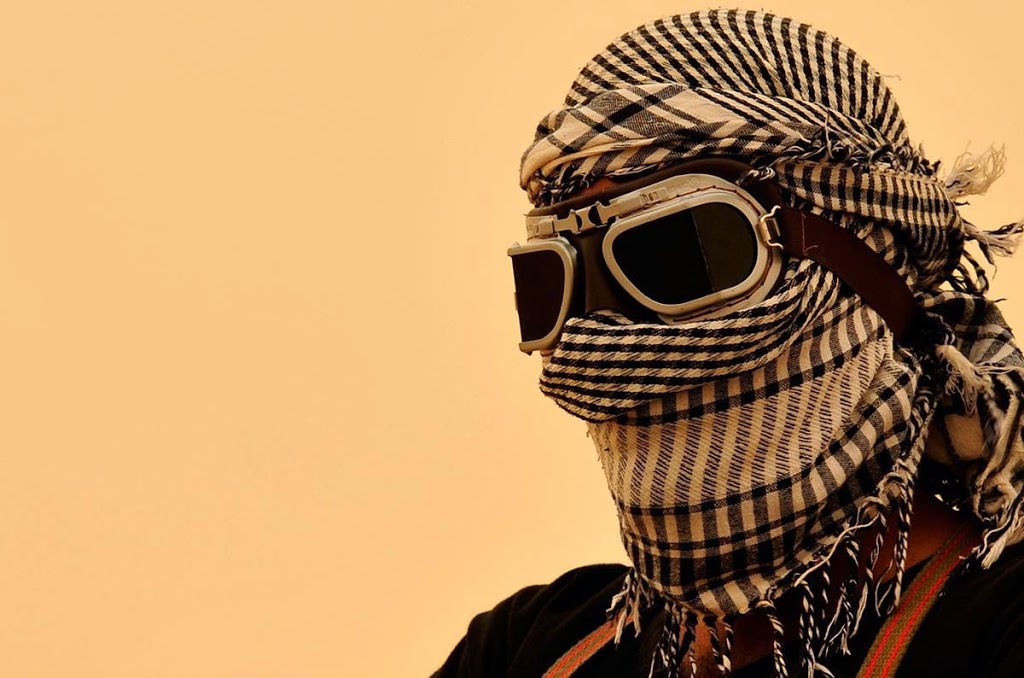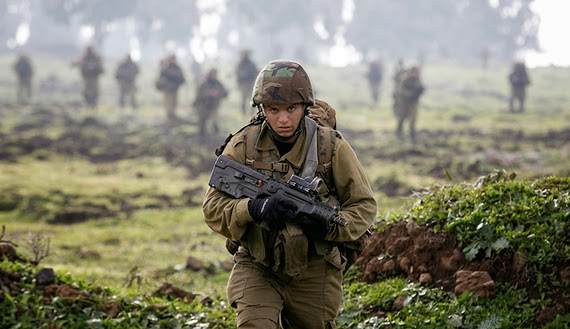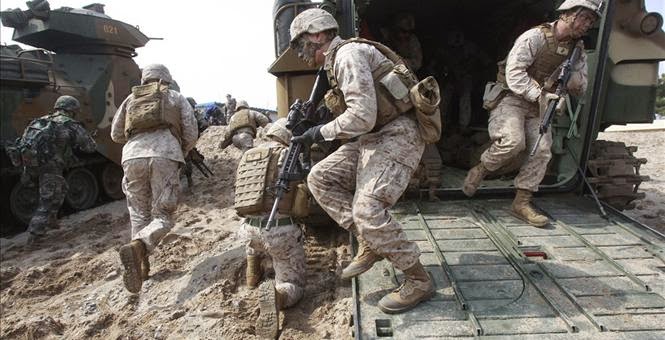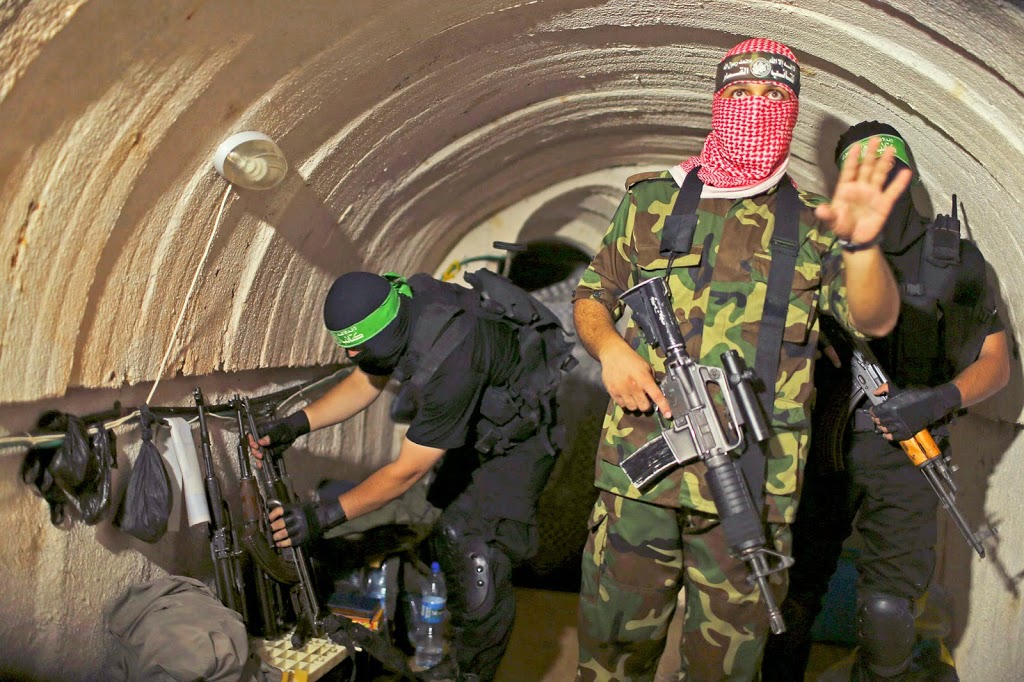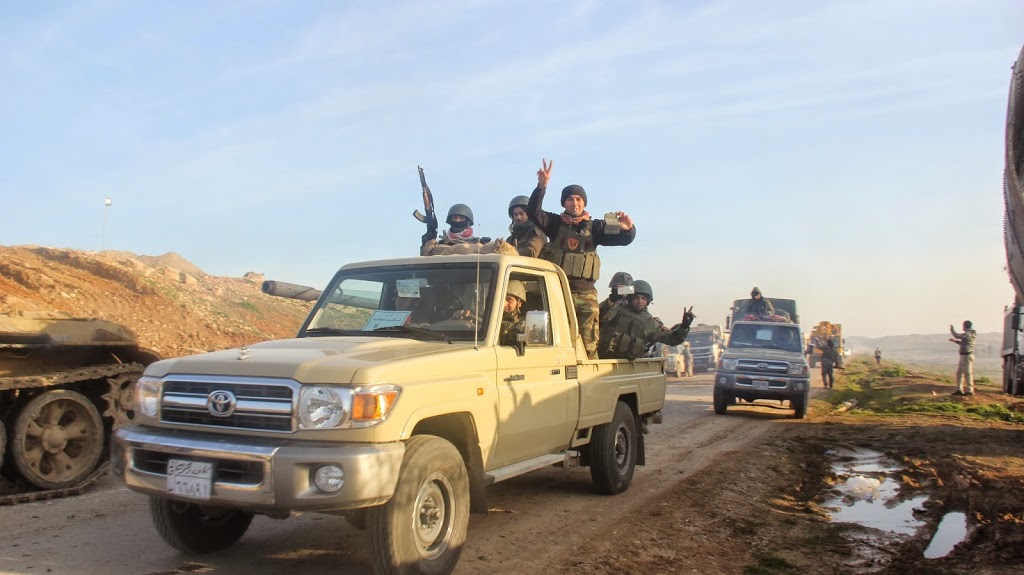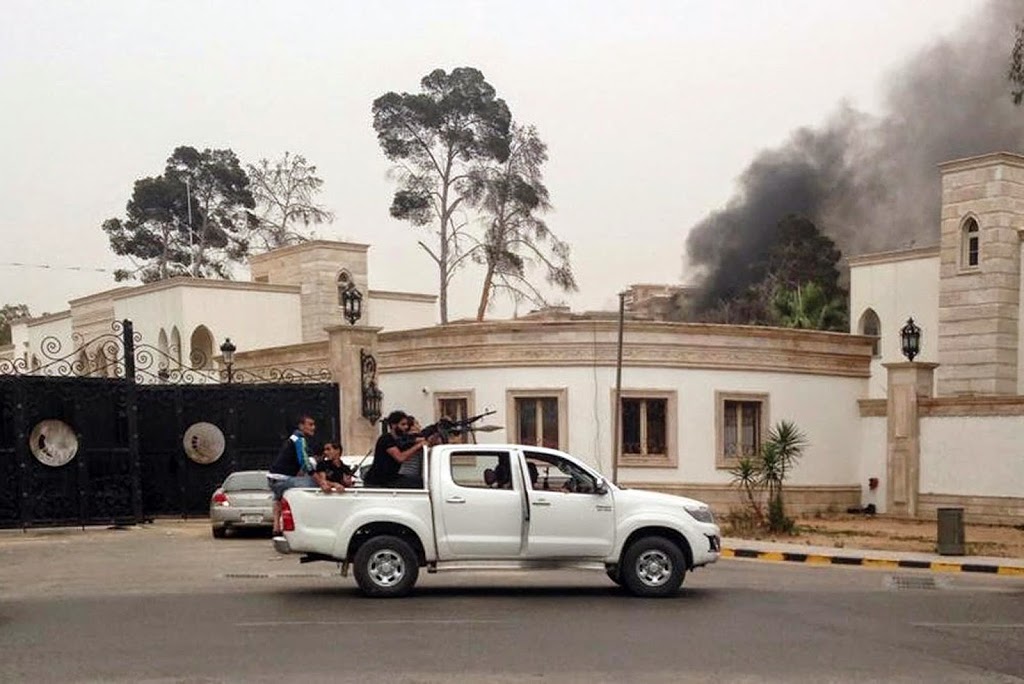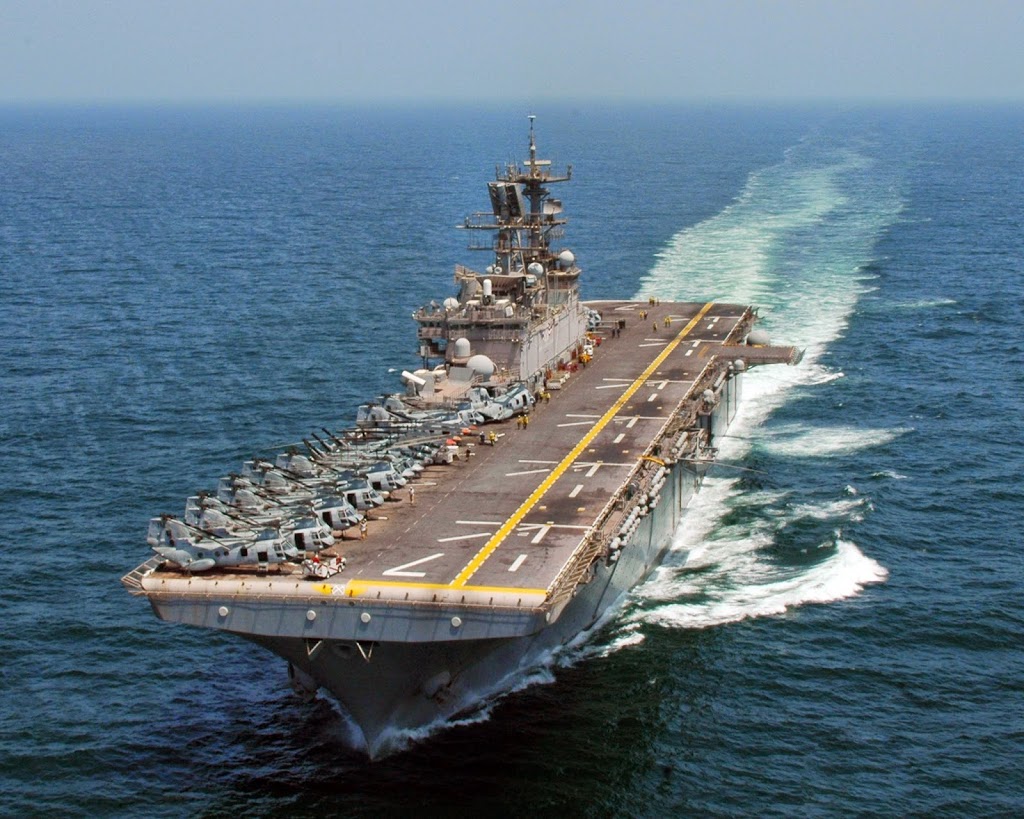Israel anticipates Hezbollah’s reaction
Just imagine a Hollywood screenplay depicting an Israeli airstrike against a convoy of vehicles in the Syrian Golan. In this scenario, six high-level Hezbollah officers are eliminated, including Jihad Mughniyeh, son of Imad Mughniyeh — who was himself eliminated in 2008 — and six Iranian officers, including a high-ranking general in the Islamic Revolutionary Guard Corps.
By the way, that same 1994 terror attack in Buenos Aires was attributed to the aforementioned Imad Mughniyeh. And now, try to find a Hollywood studio willing to produce this “unrealistic” screenplay and turn it into a movie. It would be very hard, indeed.
As we know, reality beats imagination hands down; in fact, this scenario actually took place on the morning of Jan. 18. A convoy of three military vehicles, traveling not far from Quneitra in the Syrian Golan Heights, suddenly blew up. Initial reports in Lebanon mentioned an Israeli Apache helicopter, but later on it emerged (from a UN spotters’ report) that two unmanned aircraft crossed the border from the Israeli to the Syrian side, then returned.
A glimpse at the remnants of the blown-up convoy strengthened the assessment that no one survived the inferno. Only after about half a day had passed did it emerge that the bombers had “won the jackpot”: Jihad Mughniyeh was the son of Hezbollah Chief of Staff Imad Mughniyeh, who had been eliminated in Damascus in February 2008 in an operation attributed to Israel. But Jihad Mughniyeh was small fry compared with the others killed. With him in the convoy were also Hezbollah and Revolutionary Guard senior officials, including Gen. Mohammad Allahdadi, who had served as an Iranian military attache in the Syrian army.
The bombarded convoy also included senior officers from the Raduan Force, considered Hezbollah’s elite unit. This force is also considered as Hezbollah’s “rapid Intervention force.” Hezbollah Secretary-General Hassan Nasrallah counts mainly on this force to fight Israel in the next round of hostilities by invading Israeli territory and taking over Israeli population centers for the first time since 1948.
Officially, Israel maintains its silence, neither confirming nor denying responsibility. The Israeli government’s “home newspaper” Israel Hayom, connected directly to the prime minister’s office, announced in Jan. 19 headlines that “our forces attacked a high-level terrorist unit in the Syrian Golan.” These are election days in Israel and anyone who links the operation in Syria to the Likud Party’s faltering campaign and the embarrassing draw that Prime Minister Benjamin Netanyahu reached in Gaza does so at his own risk.
The Israeli defense system is a healthy, democratic system that cannot be harnessed to political needs. True, it is possible to force a chief of staff to attend a political news conference; one could pull such shenanigans here and there. However, it is very difficult to engage the IDF (Israel Defense Forces) Intelligence Wing, and the Mossad, and the Shin Bet, and the General Staff in election shenanigans that could morph into an all-out war in the Middle East.
Also, Chief of Staff Maj. Gen. Benny Gantz is wrapping up his term of office in the middle of next month. With one foot out the door, it is hard to imagine that Netanyahu or even Defense Minister Moshe Ya’alon (the two share the same leaky political boat) could even conceive of recruiting Gantz for a military-political escapade of this type.
In fact, an operation such as the one carried out Jan. 18 in Syria was the result of long-term intelligence efforts combined with a rare coincidence and even rarer operational opportunity that presented itself. Such an operation would be subjected to a long series of secret clearances, right down to the final clearance from the mouth of the prime minister (in consultation with the defense minister).
Netanyahu is viewed as a conservative and cautious prime minister, much less daring than his predecessor Ehud Olmert. It is possible that in his subconscious the election campaign, and his lackluster position in the public-opinion surveys, influenced Netanyahu in favor of extricating the final “yes.” Yet no one to date has invented a device that measures the subconscious.
According to foreign reports, Israel has been attacking Syrian targets for quite some time. The Israeli new red line, by which Israel thwarts acts of terror and prevents “game-changing weapons” from moving from Syrian President Bashar al-Assad’s hands to Hezbollah, is dragging the country into the Syrian civil war. But in the Middle East, everything has its price and Israel is supposed to take into consideration the cumulative, potential price of the escalation.
On the afternoon of Jan. 20, an Israeli source was quoted by the Reuters news agency as saying that the Iranian general had not been a target for elimination. This means that Israeli intelligence regarding the movement of the convoy in the Syrian Golan was good, but not excellent. Israel did not plan to eliminate a general of the Revolutionary Guards, and if it had known in advance about his presence, the operation might not have been approved. The Israeli announcement is viewed as an Israeli attempt to lower the flames, and to try to pacify Tehran.
Now, everyone waits for Hezbollah’s response, which is expected to react in Iran’s name as well. On Jan. 19, Israel deployed a battery of the Iron Dome air defense system in the north and the IDF canceled all leaves of its fighters and officers in the Golan Heights and along the border with Lebanon. Civilians were instructed to try to distance themselves from the border fence. However, this is still a far cry from a state of war.
“The Israeli evaluation,” said a high-placed security official, “is that Hezbollah cannot allow itself to open a wide front with the IDF at this point in time. It is already stretched to the limits of its capacity in Syria, it is struggling against the Islamic State and Jabhat al-Nusra in north Lebanon; it is under severe criticism within Lebanon and knows that a bloody, casualty-ridden round of fighting and destruction with Israel now may exact a price that it cannot pay.
On the other hand, Hezbollah has a proven record of reprisals and a long memory. The assessment is that the retaliation will be in the Golan sector, where Hezbollah ostensibly leaves Lebanon outside the equation, or against an Israeli or Jewish target abroad.”
It took Hezbollah four years to retaliate for the elimination of Imad Mughniyeh. A total of 20 attempts were thwarted until the 2012 terror attack in Burgas, Bulgaria, in which five Israeli tourists and one Bulgarian citizen were killed. All this does not tell us anything about what to expect now. Nasrallah was humiliated in the Golan Heights on Sunday in an almost unprecedented fashion. Two days earlier he had declared, in an interview, that Hezbollah was not involved in the Golan and had no presence there. Almost while he spoke, six Hezbollah officials exploded in the heart of the Golan while they were plotting and scheming with Iranian generals.
“I suggest that the world ask itself, what were members of the Revolutionary Guards and Hezbollah doing there, only a few kilometers from the Israeli line,” a high-placed Israeli military source said. “We are not talking about an area with strategic interest to the survivability of the Syrian regime; the Golan is of negligible importance in that respect. Instead, we see a joint interest of Iran and Hezbollah to continue to weaken and tire Israel out in terror attacks via the Golan Heights.”
Maj.-Gen. (res.) Giora Eiland, a former national security adviser, told me Jan. 19 that the mistake made by Israel in its prior round of fighting was that it agreed to isolate Hezbollah from Lebanon and only fought the terrorist organization, without harming the host state. Eiland said the next time Israel will need to make it very clear that any fire or terrorist attack coming from Lebanon will constitute a declaration of war of the Lebanese government on Israel and will be dealt with accordingly. Hezbollah must know that it can no longer light the candle on both ends and that Lebanon will pay a very steep price in the next conflagration.
Major-Gen. (res.) Amos Yadlin, former head of the IDF Military Intelligence, has recently been declared candidate of the “Zionist camp” list for defense minister, should Labor Party leader Isaac Herzog assemble the next government.
In a television interview on the evening of Jan. 19, Yadlin said Hezbollah was struggling with severe strategic problems, and that thus Israel is currently of relatively lower priority. Yadlin indicated that Hezbollah’s most important directive was the one received from Tehran, namely to preserve Assad’s regime at any price. Thus, the organization must turn its eyes eastward to Syria, not southward to Israel, because it won’t receive the required legitimacy to set Lebanon on fire.
All this tumult is taking place simultaneously with another round of talks between Iran and the world powers. The leading players in the talks are US Secretary of State John Kerry and Iranian Foreign Minister Mohammad Javad Zarif. “At some point,” said an Israeli security source, “The US will have to put the dilemma to Iran and force Iran to make a decision.
If Iran wants to reach an historic agreement with the West, in which it would concede its ability to reach the nuclear threshold in the short term, it must also waive its world-reaching terror activities. The Iranians must not be allowed to continue to play their double-handed game. On the one hand, they masquerade as a stabilizing, law-and-order loving state in Geneva, while continuing to seek confrontations, and incite terror and destruction against Israel.”
Amidst tension, Israeli authorities say at the moment no sign of terrorist activity in North
After initial media reports indicated that roadways were sealed and residents in towns adjacent to the border with Lebanon were told to stay in their homes, authorities confirmed on Wednesday evening that there was no sign of infiltration by terrorists.
All roadways have been opened and authorities declared that there was no sign of suspicious activity in the area.
Security forces have been on high alert in the area just days after a suspected Israeli aerial strike on a convoy driving in the Syrian-controlled area of the Golan Heights killed senior Hezbollah and Iranian military officials.
Hezbollah and its allies have pledged to respond to the attack, which Israel has not confirmed.
Minutes earlier, residents in the North were told to stay in their homes on Wednesday evening following a suspected security threat.
The alleged incident occurred near Reches Ramim close to the Lebanon border. Security forces were patrolling the area to rule out a terrorist infiltration or other such security event.
Northern Israel remains on high alert Wednesday night for potential fallout from an air strike that killed senior Hezbollah and Iranian officials on Sunday, as Iran warned Israel to expect “ruinous thunderbolts.”
The continuing tension and possible threat of a deterioration in the security situation prompted IDF chief of staff Benny Gantz to cancel his trip to a meeting of NATO military commanders, Channel 10 reported.
In light of the security evaluation, the IDF shut a section of road along the Lebanese border between Avivim and Dovev to all but local farmers.
Prime Minister Benjamin Netanyahu, Defense Minister Moshe Ya’alon and Foreign Minister Avigdor Liberman held a special session of a trimmed down security cabinet Tuesday.
The two-hour meeting reportedly was devoted to discussing the developments in the North. No statement was released afterward.
Source: jpost.com
Boots on the ground? ISIS war vote could come by spring
Speaker John Boehner (R-Ohio) on Wednesday said Congress will consider a new Authorization for the Use of Military Force (AUMF) against the Islamic State in Iraq and Syria (ISIS) by the spring.
Following a closed-door GOP conference meeting, Boehner told reporters he expects the White House to send Congress a new proposal.
“I expect the president is going to send an authorization to the Congress. I expect that we will have hearings on that, and that we will in fact have a debate and a vote on it. Timing has yet to be determined,” Boehner said.
Boehner then suggested it could all happen within a few months.
In his State of the Union address Tuesday night, President Obama called on Congress to pass a new AUMF despite saying previously he had the authority to authorize military operations against ISIS.
Iranian Defense Minister: Iran to arm West Bank against Israel
Iranian Defense Minister General Hossein Dehqan on Wednesday declared that Tehran will arm Palestinians in the West Bank against the Zionist state, according to the Iranian Fars news agency.
Naqdi stressed, during a memorial service marking the death of six Hezbollah members and an Iranian General killed by Israeli Occupation forces in Syria, that “arming the West Bank is a principal policy of the Islamic Republic and we will use every means and capacity” to fulfill this policy.
Dehqan warned that “the Zionists will receive a crushing response” and added “today the resistance front, as representative of all Muslims, is acting against the Zionists and the Takfiri stream and we will support it in every aspects with all our capacities,” reported Fars news agency.
On Wednesday, at a funeral procession for General Mohammed Ali Allahdadi, killed by Israel in Golan Heights, a Revolutionary Guards commander Major General Ali Jafari said “the path of martyr Allahdadi is unstoppable and will be continued until the liberation of the Holy Quds (Jerusalem) and obliteration of the Zionist regime.”
Jafari also took aim at Israel on Tuesday, saying, “The Zionists should await destructive thunderbolts.”
“They have in the past seen our wrath,” he announced, adding the Revolutionary Guards “will continue its support for Muslim fighters and combatants in the region.”
Mohsen Rezaie, secretary of Iran’s Expediency Council, on his part said that Hezbollah would eventually retaliate against “this recent atrocity,” but that the group was “prudent and has a long term plan and will not be infuriated.”
General Mohammed Ali Allahdadi died alongside six fighters from Lebanon’s Hezbollah resistance movement in the attack Sunday near Quneitra on the Syrian-controlled side of the Golan Heights.
An Israeli security source told AFP one of its helicopters carried out the strike, but a United Nations’ observer force in the Golan raised the possibility that drones may have been used.
The incident came days after Hezbollah chief Hassan Nasrallah threatened to retaliate against Israel for its repeated strikes on targets in Syria, and boasted the movement was stronger than ever.
Source: al-akhbar.com
Video of Mosul Operation: Peshmerga launch large-scale offensive against ISIS South of Mosul Dam
The Peshmerga forces on Wednesday morning launched large-scale offensive against the Islamic State militants from multiple positions in south east and south west of Mosul dam in northern Iraq.
According to a press release from the office of The Chancellor Kurdistan Region Security Council (KRSC) the Peshmerga attacks started at 07:00 in morning, when Peshmerga forces launched a large-scale offensive against the Islamic State (IS) from multiple positions south east and south west of Mosul Dam.
Yemen: Abd al-Malik al-Houthi, da leader dei ribelli a “principe senza corona” di Sana’a
In meno di un anno Ansar Allah Abd al-Malik al-Houthi da capo del movimento è diventato il “principe senza corona” di Sana’a: le sue truppe hanno occupato le strade della capitale yemenita e circondato le sedi delle principali istituzioni del Paese, tra cui il palazzo presidenziale.
Abd al-Malik al-Huthi è il figlio più giovane del leader spirituale Badr al-Din ibn Amir Din al-Huthi, uno dei punti di riferimento spirituali della setta Zaydi (variante dello sciismo) in Yemen.
Egli è diventato il leader del gruppo Gioventù credente (trasformatosi in seguito in Ansar Allah) prendendo il posto del fratello, morto durante i primi scontri tra i ribelli sciiti e le forze dell’esercito dell’ex presidente yemenita Ali Abdullah Saleh, nel settembre del 2004.
Tra il 2004 e il 2010, il gruppo guidato da al-Huthi ha iniziato una guerra intermittente contro il governo yemenita nella provincia di Sa’ada nel sud del Paese e nel 2010 si è scontrato con l’esercito saudita in seguito alle incursione delle forze del regno nel territorio dello Yemen.
Gli Houthi hanno vissuto una forte espansione in seguito alla scoppio della rivoluzione nel 2011, grazie alla conquista e al controllo della regione di Sa’ada prima e della regione di Al-Jawf poi.
Nel 2014 le forze ribelli sciite sono entrate nella capitale yemenita Sana’a, imponendo con tutta la sua forza la loro presenza nella politica yemenita.
Source: Arabpress
U.S. urges all americans to leave Libya “immediately”
French government to strengthen intelligence services: more staff for counter-terror operations
The French government is to hire more staff to strengthen its intelligence services, Prime Minister Manuel Valls has said.
Valls told a press conference at the Elysee presidential palace in Paris on Wednesday that the government will hire 2,680 staff and spend €425 million ($490 million) on counter-terrorism over three years following the attacks in Paris two weeks ago in which 17 people were killed.
He said: “Terrorism has struck our soil and the threat of terrorism remains high.”
The announcement followed a meeting of ministers at the Elysee presidential palace in the French capital on Wednesday.
Turkish cooperation
Valls said the government’s first priority was to increase the number of employees in the intelligence services and that 3,000 people, some in France and others abroad, would be monitored by “anti-terror” surveillance agents.
He said the number of people likely to take some form of “action” in France had dramatically increased, adding: “We must act and act quickly.”
Valls said Paris was cooperating with the Turkish government in the “fight against terrorism” and French Foreign Minister Laurent Fabius was in constant contact with his Turkish counterpart Mevlut Cavusoglu.
Meanwhile, Paris Prosecutor Francois Molins announced in a press conference earlier on Wednesday that four men suspected of providing logistical support to one of the Paris attackers had been charged with associating with terrorism.
Hostages killed
The prosecutor did not name the suspects, identifying them only as Willy P., Christophe R., Tonino G. and Mickael A.
Three of the men are suspected of buying weapons for Amedy Coulibaly, who shot dead 27-year-old policewoman Clarissa Jean-Philippe and later killed four hostages in a kosher supermarket in Porte de Vincennes. He was later shot dead by police.
Police arrested more than 12 people in Paris last week in connection with the attacks.
The suspects were accused of “assisting terrorists logistically” with guns and vehicles.
Source: aa.com.tr
Pentagon in position to evacuate U.S. Embassy in Yemen
Two U.S. Navy warships moved into new positions in the Red Sea late Monday to be ready to evacuate Americans from the US embassy in Yemen if an order comes to do so, CNN has learned.
- « Previous Page
- 1
- …
- 204
- 205
- 206
- 207
- 208
- …
- 268
- Next Page »
